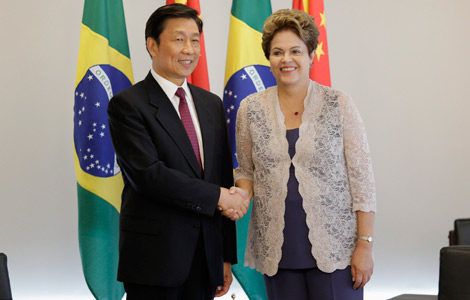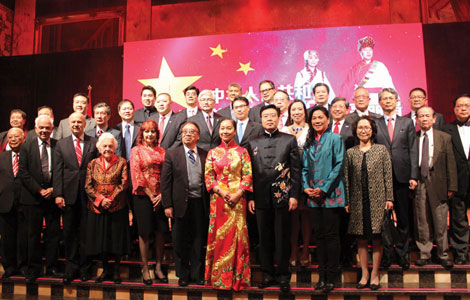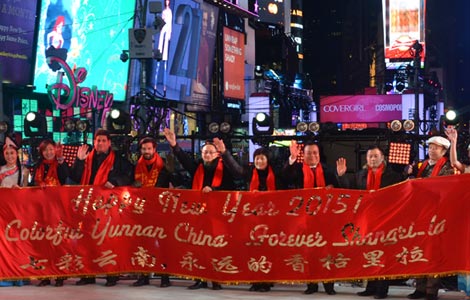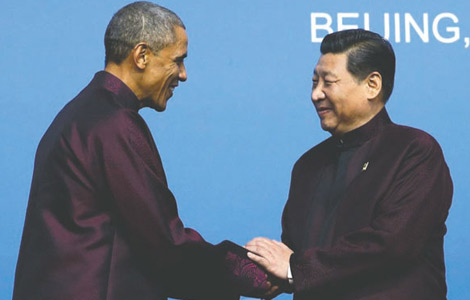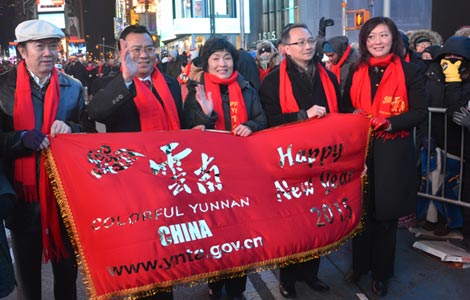Tapping more on brain power
Updated: 2015-01-03 11:12
By Li Yang(China Daily)
|
||||||||
Chinese mainland's think tanks must overcome hurdles to fuel increasing role at home and abroad, Li Yang reports.
|
TOP THINK TANKS WORLDWIDE (US AND NON-US) 1. Brookings Institution (US) 2. Chatham House (UK) 3. Carnegie Endowment for International Peace (US) 4. Center for Strategic and International Studies (US) 5. Stockholm International Peace Research Institute (SIPRI) (Sweden) 6. Bruegel (Belgium) 7. Council on Foreign Relations (US) 8. Rand Corporation (US) 9. International Institute for Strategic Studies (IISS) (UK) 10. Woodrow Wilson International Center for Scholars (US) 20. Chinese Academy of Social Sciences (CASS) (Chinese mainland) 36. China Institute of International Studies (CIIS) (Chinese mainland) 44. China Institutes of Contemporary International Relations (CICIR) (Chinese mainland) 61. Center for International and Strategic Studies (Chinese mainland) 71. Shanghai Institutes of International Studies (Chinese mainland) 99. Development Research Center of the State Council (Chinese mainland) SOURCES: 2013 GLOBAL GO TO THINK TANK; INDEX&ABRIDGED REPORT; JAMES G.MCGANN; DIRECTOR THINK TANKS AND CIVIL SOCIETIES PROGRAM; UNIVERSITY OF PENNSYLVANIA; PHILADELPHIA, USA. |
There are more than 2,500 think tanks on the Chinese mainland, among which 2,000 are affiliated with the government and universities, employing 35,000 full-time researchers and 270,000 working staff, according to a survey by the Guangzhou-based Nanfang Media Group.
These think tanks can be classified into three categories in terms of ownership: State-operated academies and institutions, research centers affiliated with universities, and private research organizations.
Of them, 426 think tanks entered the 2013 Global Go To Think Tank Index & Abridged Report, which lists nearly 7,000 think tanks in the world. That number ranks next only to the United States' 1,828 in the list.
The report, issued by the think tank and civil societies program of the University of Pennsylvania in 2014 and directed by Professor James G. McGann, is an influential paper on global think tanks.
Six Chinese mainland think tanks entered the Top 100 list, with the Chinese Academy of Social Sciences, including all of its institutes and centers, ranked 20th. The US Brookings Institution led the list.
The three criteria used to assess think tanks are professional value of their research, independence from interest groups, and influence on public life. About 70 percent of Chinese think tanks failed to make it to McGann's report, which surveyed hundreds of experts, officials and reporters around the world, because of their weakness in these areas. Most of the 426 listed Chinese mainland think tanks are government-run or with government backgrounds.
Historical development
During the Spring and Autumn Warring States period (770-470 BC) when China broke into dozens of small states, the seven strongest kingdoms were also the ones with the most "think tanks" of that time, mostly in form of scholar officials like Confucius and Sun Tzu. That period ushered China into its first well-recorded strong dynasty, that of the Han (202 BC-AD 220).
Scholar officials played a key role in Chinese governments thereafter. To draw the most educated people, governments since the Han Dynasty implemented an imperial exam system till the early 1900s, when republicanism replaced feudal imperial power.
The most influential scholars and thinkers for the government and public life had more job options, like positions in academies, universities and the media, apart from working for the government. The pattern lasted till the end of the 1980s.
In response to strong demand for innovation to build a market economy, some maverick officials, entrepreneurs and scholars bid farewell to the state system and launched private ventures. These people form the pioneers of civilian think tanks.
To some extent, it was the change of political and economic systems since the early 1900s that drew people in the think tanks from the government to schools and the market, step by step, creating necessary conditions for their independence, which has become a key feature of modern think tanks.
Most Viewed
Editor's Picks

|

|
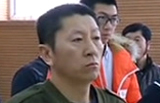
|

|

|

|
Today's Top News
US sanctions DPRK over Sony cyberattack
Major challenges facing Brazilian president's 2nd term
Rousseff vows to restore economic growth in 2nd term
Crowds mourn stampede victims
Orchestra exchanges play key role
Sino-US ties set to be modified, diplomat says
Chinese expected to travel more in 2015
Forum to elevate China-Latin America ties
US Weekly

|

|


